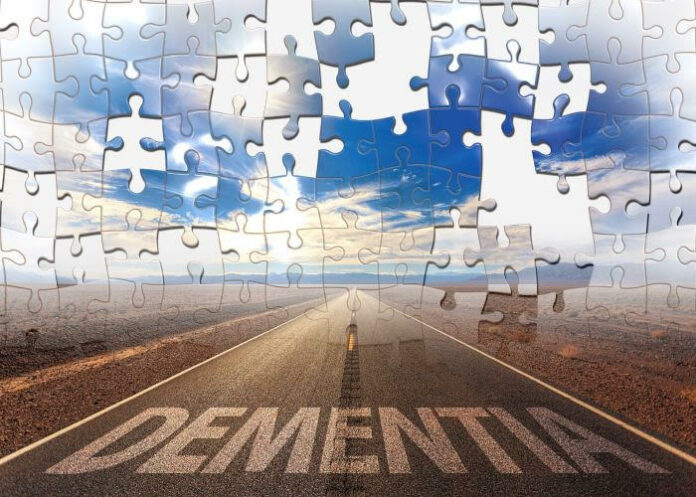People who are socially isolated have lower grey matter volumes of brain regions involved in memory and learning, a team of researchers has discovered.
Their data show that these people are 26% more likely to develop dementia, which has implications for health and social care policy, in the wake of the COVID-19 pandemic.
The team from the University of Warwick, University of Cambridge and Fudan University (Shanghai) used neuroimaging data from more than 30,000 participants in the UK Biobank data set.
Based on data from the UK Biobank, an extremely large longitudinal cohort, they used modelling techniques to investigate the relative associations of social isolation and loneliness with incident all-cause dementia. After adjusting for various risk factors (including socio-economic factors, chronic illness, lifestyle, depression and APOE genotype), socially isolated individuals were shown to have a 26% increased likelihood of developing dementia.
Loneliness was also associated with later dementia, but that association was not significant after adjusting for depression, which explained 75% of the relationship between loneliness and dementia. Therefore, relative to the subjective feeling of loneliness, objective social isolation is an independent risk factor for later dementia. Further subgroup analysis showed that the effect was prominent in people over 60.
Professor Edmund Rolls, neuroscientist from the University of Warwick Department of Computer Science, said: “There is a difference between social isolation, which is an objective state of low social connections, and loneliness, which is subjectively perceived social isolation.
“Both have health risks … we have showed that it is social isolation, rather than the feeling of loneliness, which is an independent risk factor for later dementia. With the growing prevalence of social isolation and loneliness over the past decades, this has been a serious yet under-Veappreciated public health problem.
“In the shadow of the COVID-19 pandemic this has implications for social relationship interventions and care, particularly in the older population.”
Study details
Associations of Social Isolation and Loneliness With Later Dementia.
Chun Shen, Edmund Rolls, Wei Cheng, Jujiao Kang, Guiying Dong, Chao Xie, Xing-Ming Zhao, Barbara Sahakian, Jianfeng Feng.
Published in Neurology on 8 June 2022
Abstract
Objective
To investigate the independent associations of social isolation and loneliness with incident dementia and to explore the potential neurobiological mechanisms.
Methods
We utilised the UK Biobank cohort to establish Cox proportional hazard models with social isolation and loneliness as separate exposures. Demographic (sex, age and ethnicity), socioeconomic (education level, household income and Townsend deprivation index), biological (BMI, APOE genotype, diabetes, cancer, cardiovascular disease and other disabilities), cognitive (speed of processing and visual memory), behavioural (current smoker, alcohol intake and physical activity), and psychological (social isolation or loneliness, depressive symptoms and neuroticism) factors measured at baseline were adjusted. Then, voxel-wise brain-wide association analyses were used to identify grey matter volumes (GMV) associated with social isolation and with loneliness. Partial least squares regression was performed to test the spatial correlation of GMV differences and gene expression using the Allen Human Brain Atlas.
Results
We included 462,619 participants (mean age at baseline 57.0 years [SD 8.1]). With a mean follow-up of 11.7 years (SD 1.7), 4,998 developed all-cause dementia. Social isolation was associated with a 1.26-fold increased risk of dementia (95% CI, 1.15-1.37) independently of various risk factors including loneliness and depression (i.e., full adjustment). However, the fully adjusted hazard ratio for dementia related to loneliness was 1.04 (95% CI, 0.94-1.16); and 75% of this relationship was attributable to depressive symptoms. Structural MRI data were obtained from 32,263 participants (mean age 63.5 years [SD 7.5]). Socially isolated individuals had lower GMVs in temporal, frontal and other (e.g., hippocampal) regions. Mediation analysis showed that the identified GMVs partly mediated the association between social isolation at baseline and cognitive function at follow-up. Social isolation-related lower GMVs were related to under-expression of genes that are down-regulated in Alzheimer’s disease and to genes that are involved in mitochondrial dysfunction and oxidative phosphorylation.
Conclusion
Social isolation is a risk factor for dementia that is independent of loneliness and many other covariates. Social isolation-related brain structural differences coupled with different molecular functions also support the associations of social isolation with cognition and dementia. Social isolation may thus be an early indicator of an increased risk of dementia.
See more from MedicalBrief archives:
Apathy among older adults may signal higher dementia risk
Marriage significantly lowers dementia risk — meta-analysis
Loneliness links to poor heart outcomes and doubled mortality risk
Loneliness is as dangerous as obesity

